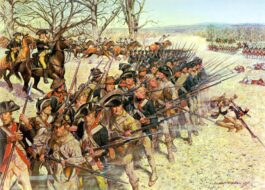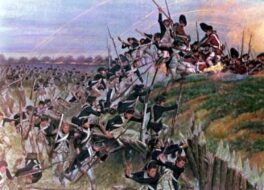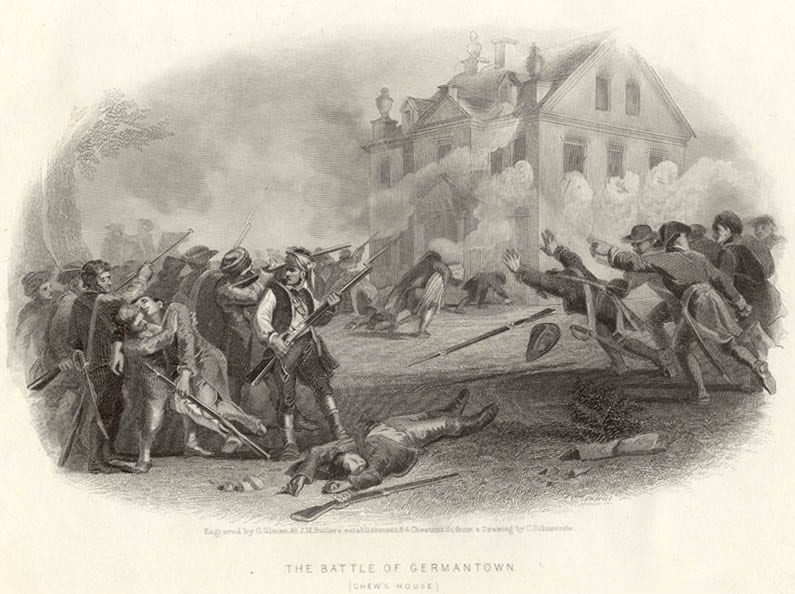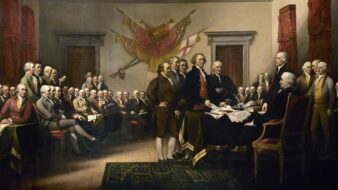


No related resources
Introduction
First conceived in 1776, revised and sent for approval to the thirteen states in 1777, and finally ratified in 1781, the Articles of Confederation might best be understood as a testimonial of the former colonies’ desire for autonomy and disdain for British imperial rule.
This plan of government reflected nearly all the grievances of 1760–1776. Hostility to executive authority, cultivated by the colonies’ royal governors, resulted in a president elected by and answerable to the legislature. Opposition to Parliament’s attempts to raise revenue without representation caused the Continental Congress to ensure that, under the Articles, the national government had no direct power to tax. The Articles required a supermajority of nine states for many decisions; amendments to this first constitution required the states’ unanimous consent. Although twelve states had ratified the Articles by February 1779, Maryland’s jealousy of Virginia’s western land claims caused it to withhold its approval of this constitution for two additional years. In the meantime, the Continental Congress operated under the Articles as its de facto charter.
In some respects, the Articles functioned precisely as designed by providing a framework for the United States to act as one in terms of foreign policy while safeguarding states’ independence in most domestic matters. Under the Articles, the United States achieved victory in the War for Independence and saw states cede sometimes-overlapping western land claims to the national government. Yet many people, especially veterans of the Continental Army, had come to view the Articles as too feeble to enable a sufficient defense of Americans’ liberty.
Although only five states sent delegates to the September 1786 Annapolis Convention, their representatives succeeded in calling for a Constitutional Convention to discuss improving the Articles. The following year delegates from all the states except Rhode Island gathered in the Pennsylvania State House, where, with George Washington presiding, thirty-six-year-old James Madison led a bold effort between May and September to draft an entirely new Constitution.
Source: Charles Tansill, ed., Documents Illustrative of the Formation of the Union of the United States (Washington, DC: Government Printing Office, 1927), 27–37. https://archive.org/details/documentsillustr00libr/page/26
Articles of Confederation and perpetual Union between the states of New Hampshire, Massachusetts-bay, Rhode Island and Providence Plantations, Connecticut, New York, New Jersey, Pennsylvania, Delaware, Maryland, Virginia, North Carolina, South Carolina and Georgia.
Article I. The style of this confederacy shall be “The United States of America.”
Article II. Each state retains its sovereignty, freedom, and independence, and every power, jurisdiction, and right, which is not by this confederation expressly delegated to the United States, in Congress assembled.
Article III. The said states hereby severally enter into a firm league of friendship with each other, for their common defense, the security of their liberties, and their mutual and general welfare, binding themselves to assist each other, against all force offered to, or attacks made upon them, or any of them, on account of religion, sovereignty, trade, or any other pretense whatever….
Article V. For the most convenient management of the general interests of the United States, delegates shall be annually appointed in such manner as the legislatures of each state shall direct, to meet in Congress on the first Monday in November, in every year, with a power reserved to each state to recall its delegates, or any of them, at any time within the year, and to send others in their stead for the remainder of the year.
No state shall be represented in Congress by less than two, nor more than seven members; and no person shall be capable of being a delegate for more than three years in any term of six years; nor shall any person, being a delegate, be capable of holding any office under the United States, for which he, or another for his benefit, receives any salary, fees, or emolument of any kind.
Each state shall maintain its own delegates in a meeting of the states, and while they act as members of the committee of the states.
In determining questions in the United States in Congress assembled, each state shall have one vote….
Article VI. No state, without the consent of the United States in Congress assembled, shall send any embassy to, or receive any embassy from, or enter into any conference, agreement, alliance, or treaty with any king, prince, or state; nor shall any person holding any office of profit or trust under the United States, or any of them, accept any present, emolument, office, or title of any kind whatever from any king, prince, or foreign state; nor shall the United States in Congress assembled, or any of them, grant any title of nobility.
No two or more states shall enter into any treaty, confederation, or alliance whatever between them, without the consent of the United States in Congress assembled, specifying accurately the purposes for which the same is to be entered into, and how long it shall continue….
No vessel of war shall be kept up in time of peace by any state, except such number only, as shall be deemed necessary by the United States in Congress assembled, for the defense of such state, or its trade; nor shall any body of forces be kept up by any state in time of peace, except such number only, as in the judgment of the United States in Congress assembled, shall be deemed requisite to garrison the forts necessary for the defense of such state; but every state shall always keep up a well-regulated and disciplined militia, sufficiently armed and accoutered,[1] and shall provide and constantly have ready for use, in public stores, a due number of field pieces and tents, and a proper quantity of arms, ammunition, and camp equipage.
No state shall engage in any war without the consent of the United States in Congress assembled, unless such state be actually invaded by enemies….
Article VIII. All charges of war, and all other expenses that shall be incurred for the common defense or general welfare, and allowed by the United States in Congress assembled, shall be defrayed out of a common treasury, which shall be supplied by the several states in proportion to the value of all land within each state, granted or surveyed for any person, as such land and the buildings and improvements thereon shall be estimated according to such mode as the United States in Congress assembled, shall from time to time direct and appoint.
The taxes for paying that proportion shall be laid and levied by the authority and direction of the legislatures of the several states within the time agreed upon by the United States in Congress assembled.
Article IX. The United States, in Congress assembled, shall have the sole and exclusive right and power of determining on peace and war, except in the cases mentioned in the sixth article—of sending and receiving ambassadors—entering into treaties and alliances….
The United States, in Congress assembled, shall have authority to … ascertain the necessary sums of money to be raised for the service of the United States, and to appropriate and apply the same for defraying the public expenses—to borrow money, or emit bills on the credit of the United States, transmitting every half-year to the respective states an account of the sums of money so borrowed or emitted—to build and equip a navy—to agree upon the number of land forces, and to make requisitions from each state for its quota, in proportion to the number of white inhabitants in such state; which requisition shall be binding, and thereupon the legislature of each state shall appoint the regimental officers, raise the men and clothe, arm, and equip them in a solid-like manner, at the expense of the United States….
The United States, in Congress assembled, shall never engage in a war, nor grant letters of marque[2] or reprisal in time of peace, nor enter into any treaties or alliances, nor coin money, nor regulate the value thereof, nor ascertain the sums and expenses necessary for the defense and welfare of the United States, or any of them, nor emit bills, nor borrow money on the credit of the United States, nor appropriate money, nor agree upon the number of vessels of war, to be built or purchased, or the number of land or sea forces to be raised, nor appoint a commander in chief of the army or navy, unless nine states assent to the same: nor shall a question on any other point, except for adjourning from day to day be determined, unless by the votes of the majority of the United States in Congress assembled….
Article XIII. Every state shall abide by the determination of the United States in Congress assembled, on all questions which by this confederation are submitted to them. And the Articles of this Confederation shall be inviolably observed by every state, and the union shall be perpetual; nor shall any alteration at any time hereafter be made in any of them; unless such alteration be agreed to in a Congress of the United States, and be afterwards confirmed by the legislatures of every state….
Journal of Arthur Lee
December 12, 1777
Conversation-based seminars for collegial PD, one-day and multi-day seminars, graduate credit seminars (MA degree), online and in-person.





























































































































































